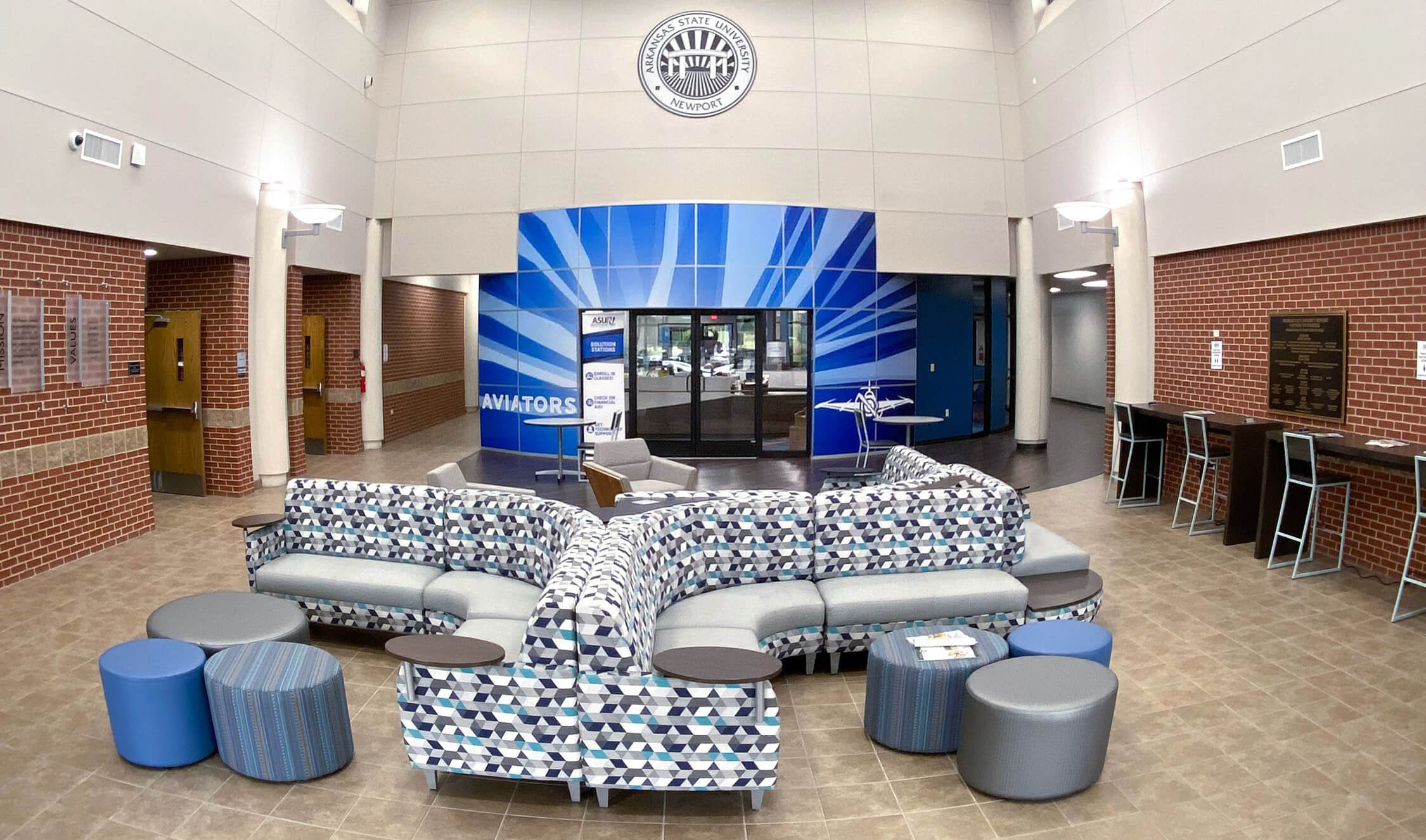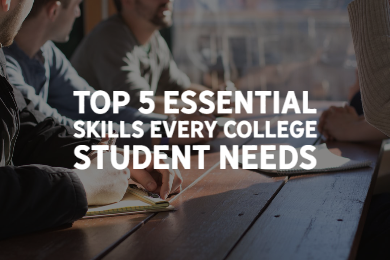
Top 5 Essential Skills Every College Student Needs

Although a strong background in traditional “hard” skills like writing, mathematics, and science will always have its place in academic and career worlds, an increasing number of employers’ desire prospective employees with “soft” skills, now called "essential" skills.
Essential skills include the ability to adapt to changing circumstances and the willingness to learn through experience, and are applicable across multiple disciplines and careers. It is important for you to develop soft skills as you prepare for college and as you graduate and enter the workforce.
There are five important essential skills every college students needs:
Collaboration
It imperative for you to function efficiently and appropriately in groups, collaborate on projects and accept constructive criticism when working with others.
People who succeed only when working alone will struggle in college and beyond, as the majority of careers require collaboration.
You can develop the skills necessary to effectively work with others in numerous ways, try participating in athletics and extracurricular activities. You can also opt to complete team-based projects such as service activities during the semester.
Communication and Interpersonal Skills
Every success college student should learn how to effectively carry on a conversation and enrich the dialogue through asking questions, actively listening, and maintaining eye contact.
The current prevalence of electronic devices has connected young individuals to one another, but many employers argue it has also lessened their ability to communicate face-to-face or via telephone.
Face-to-face communication skills are important in college as you must engage with instructors to be successful in classes and gain future employment references.
You can improve these skills by conversing with instructors in one-on-one settings or joining a study group.
Obtaining an internship in a professional setting is also a wonderful method to enhance communication and interpersonal skills.
Problem Solving
As a college student, you will be faced with a number of unexpected challenges in the process with little or no help in overcoming them. You must be able to solve problems in creative ways and to determine solutions to issues with no prescribed formula.
Students who are accustomed to learned processes, and who cannot occasionally veer off-course, will struggle to handle unanticipated setbacks. You can improve your problem-solving abilities by enrolling in classes that use active learning experiments rather than rote memorization. You should also try new pursuits that place you in unfamiliar and even uncomfortable situations, such as joining a student organization or volunteering.
Time Management
Whatever structure you may had in high school to organize your work and complete assignments in a timely manner will be largely absent in college. It is imperative that you be fully self-sufficient in managing your time and prioritizing actions.
The ability to track multiple projects in an organized and efficient manner, as well as intelligently prioritize tasks, is also extremely important for you long after graduation. You can improve this skill by assuming responsibility in multiple areas - nothing develops an ability to prioritize faster than necessity - or gaining professional employment experience through internships, volunteer work or other opportunities.
Leadership
While it is important to be able to function in a group, it is also important to demonstrate leadership skills when necessary. Both in college and the workforce, the ability to assume the lead when the situation calls for it is a necessity for anyone who hopes to draw upon their knowledge of “hard” skills in a position of influence.
The best way for you to develop leadership skills is to search for opportunities on your campus and community. This could include becoming involved in student government, organizations, or volunteering.